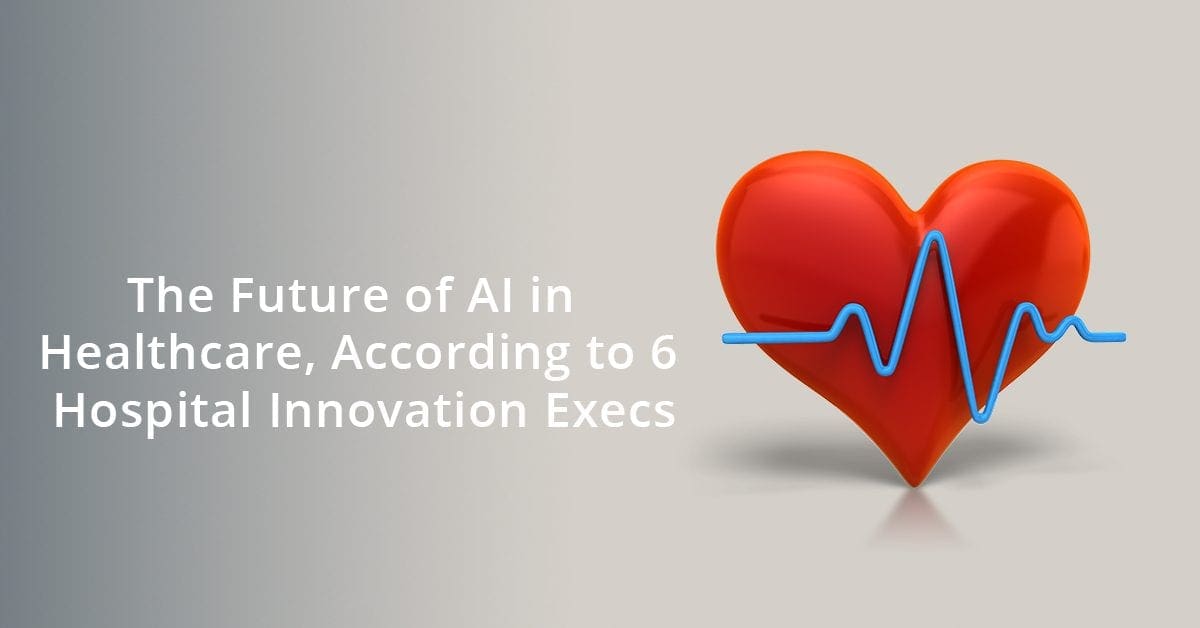Call us toll-free: 800-878-7828 — Monday - Friday — 8AM - 5PM EST

By Katie Adams for Becker’s Hospital Review
Hospital professionals are often so busy they can’t even take lunch breaks, but breakthroughs in artificial intelligence and machine learning can help make their days a bit easier so they can better focus on providing patients with optimal care.
Here, six chief innovation and digital officers from hospitals and health systems across the country shared their thoughts on what excites them most about the future of AI in healthcare.
Editor’s note: Responses have been lightly edited for clarity and length.
Omer Awan, chief data and digital officer at Atrium Health (Charlotte, N.C.): There is tremendous necessity and opportunity associated with the role of AI in healthcare. It can automate image diagnosis [and] preliminary diagnosis, help reduce dosage errors, detect fraud, and provide great value with robot-assisted surgeries and virtual nursing assistants. This frees up time for the caregivers so they can practice at the top of their licenses.
Aaron Martin, executive vice president and chief digital officer at Providence (Renton, Wash.): On the patient-facing side, I think AI is fundamentally going to solve a big problem in healthcare. If you do the math of the demographics and how many patients are going to need to be taken care of — first baby boomers and then millennials after that — the supply of providers will not meet the demand of patients. AI will help take over in low-acuity and low-risk situations so clinicians can practice at their top of license.
Peter Fleischut, MD, senior vice president and chief transformation officer at NewYork-Presbyterian Hospital (New York City): What excites me the most about artificial intelligence is actually how it improves some of our back-end processes. I think it provides the ability for us to move more people to the front lines in healthcare, and it provides the ability to take care of more patients. So any way we can be able to use it for HR, finance, IT and clinical trials is really exciting because it enables us to be able to put more people on the front lines. I think the relationships in healthcare are essential, and relationships you develop with people are at the core of the success of healthcare. So, the more people we can have on the front end, the more relationships we can build by automating some of the back-end processes.
Omkar Kulkarni, chief innovation officer at Children’s Hospital Los Angeles: Reducing and/or eliminating errors while reducing cost at the same time. The consistency that comes with AI is difficult to replicate, even in the most high-performing organization. Healthcare can and will benefit from purpose-built AI tools.
Muthu Krishnan, PhD, chief digital transformation officer at IKS Health (Burr Ridge, Ill.): The ability to look at patterns and not-so-apparent dependencies to make appropriate administrative and clinical decisions.
Nick Patel, MD, chief digital officer of Prisma Health (Columbia, S.C.): The predictive insight for early detection of disease and diagnosis.
